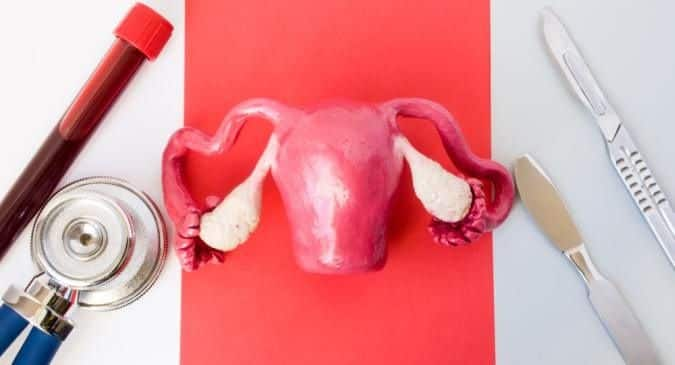One of the primary biological factors contributing to vaginal odour is the natural flora of the vagina, which consists of a delicate balance of bacteria. Lactobacilli, the beneficial bacteria, help maintain an acidic environment that inhibits the growth of harmful microorganisms. However, when this balance is disrupted—due to factors such as menstruation, sexual activity, or hormonal changes—unpleasant odours can develop.
Hormonal fluctuations, particularly those associated with the menstrual cycle, pregnancy, or menopause, can also play a significant role. For instance, during ovulation, increased estrogen levels can lead to changes in vaginal discharge, potentially causing a stronger scent. Changes in Vagina pH levels can as well contribute to odour.
What Is Vaginal Discharge? Vaginal discharge, also known as leukorrhea, is normal in the female reproductive system. The main function of the discharge Is that it helps to clean and lubricate the vagina, carrying away dead cells and bacteria, thus preventing infections.
Vaginal discharge is clear or whitish and may vary in consistency throughout the menstrual cycle. For instance, during ovulation, the discharge can become clear and stretchy, resembling egg whites, which indicates peak fertility. Conversely, after menstruation, it may appear thicker and creamier.
While vaginal discharge is generally normal, changes in colour, consistency, or odour can signal underlying health issues. For example, a thick, white discharge resembling cottage cheese often indicates a yeast infection, while yellow or green discharge may suggest bacterial vaginosis or a sexually transmitted infection (STI) like trichomoniasis.
Don’t Miss: Can Boric Acid Vaginal Suppositories Treat Yeast Infections or BV?
Top 4 Natural Remedies to Eliminate Vaginal Odour
While abnormal vaginal discharge may be a cause of concern, you can get rid of it with following simple and effective home remedies.
1. Apple Cider Vinegar
Apple cider vinegar is loaded with antibacterial properties and can balance the vagina’s pH levels, a Nature report revealed. The acidity of vinegar helps to neutralize odours and eliminate the bacteria that cause them.
How to Use:
- Soak in the Bath: Add one cup of apple cider vinegar to a warm bath and soak for about 20 minutes. This allows the vinegar to interact with the vaginal area, helping to cleanse and deodorize.
- Drink Diluted Vinegar: Mix two tablespoons of apple cider vinegar in a glass of lukewarm water and drink it twice daily. This can help detoxify the body and improve overall vaginal health.
2. Garlic
Garlic is another powerful natural remedy due to its antifungal and antibacterial properties, a study shared. It can help combat the bacteria responsible for unpleasant odours.
How to Use:
- Garlic Insert: Wrap a peeled garlic clove in cheesecloth, tie it securely, and insert it into the vagina like a tampon. Leave it in overnight. The garlic will work to eliminate odour-causing bacteria while you sleep. Be cautious and ensure the garlic is securely wrapped to avoid irritation.
3. Baking Soda
Baking soda is a versatile remedy that can help restore the vagina’s natural pH balance and reduce odour, Healthline. Its alkaline nature neutralizes acidity, which can help combat unpleasant smells.
How to Use:
- Baking Soda Bath: Add half a cup of baking soda to your bathwater and soak for 20 to 30 minutes. This not only helps to cleanse the vaginal area but also soothes any irritation.
- Drink Baking Soda Water: Dissolve a teaspoon of baking soda in a glass of warm water and drink it. This can help balance your body’s pH levels from the inside out, contributing to overall freshness.
4. Pineapple
Pineapple is not just a delicious tropical fruit; it can also help improve vaginal odour due to its natural enzymes and high water content. The bromelain in pineapple can aid in breaking down proteins, which may help reduce odour.
How to Use:
- Consume Fresh Pineapple: Eating raw pineapple or drinking its juice daily can help enhance your body’s natural scent. The fruit’s sweetness and acidity can positively influence your vaginal health and odour.
Hygiene and Lifestyle Changes That Can Help Reduce Vaginal Odour
- Quit smoking
- Manage stress levels
- Practice safe sex by using condoms
- Stay hydrated by drinking plenty of water
- Limit intake of spicy, smoked, and strongly flavoured foods
- Avoid excessive consumption of meat, dairy products, and alcohol
- Regular bathing or showering with mild, unscented soap and water
- Avoid douching, as it can disrupt the natural pH balance of the vagina
- Change out of sweaty clothes promptly after exercise or activities
- Use breathable cotton underwear and avoid tight-fitting clothing
- Wipe from front to back after using the toilet to prevent the spread of bacteria
- Urinate after sexual intercourse to flush out the area and prevent infections
- Consume probiotic-rich foods like yogurt, kefir, and fermented vegetables.
Long-term Benefits of Using Natural Remedies for Vaginal Health
Balanced Vaginal Flora: Natural remedies, particularly those that include probiotics like yogurt and fermented foods, can help maintain a healthy balance of vaginal flora. A balanced microbiome is crucial for preventing infections such as bacterial vaginosis (BV) and yeast infections, which are often characterized by unpleasant odours and discomfort. Probiotics can restore the natural acidity of the vagina, helping to inhibit the growth of harmful bacteria and yeast over time.
Reduced Risk of Infections: Many natural remedies possess antibacterial and antifungal properties. For example, garlic and tea tree oil are known for their ability to combat infections. Regular use of these remedies can help reduce the frequency of infections, leading to improved vaginal health in the long run. This proactive approach can minimize the need for pharmaceutical interventions, which may have side effects.
Improved pH Balance: Maintaining an optimal vaginal pH (typically between 3.8 and 4.5) is essential for overall vaginal health. Natural remedies such as apple cider vinegar can help restore and maintain this balance, preventing the conditions that lead to odour and infections. A stable pH not only reduces the risk of infections but also contributes to a healthier vaginal environment overall.
Enhanced Comfort and Moisture: Natural lubricants like coconut oil and aloe vera can provide hydration and comfort, particularly for women experiencing vaginal dryness, often associated with hormonal changes or menopause. Regular use of these natural moisturizers can improve sexual health and comfort, reducing discomfort during intercourse and enhancing overall quality of life.
Read More: 3 home remedies for vaginal itching
References
- Knobil, E., & Neill, J. D. (2006). Knobil and Neill’s physiology of reproduction (Vol. 1). Elsevier.
- Ness, R. B., Hillier, S. L., Richter, H. E., Soper, D. E., Stamm, C., Bass, D. C., … & Sweet, R. L. (2002). Why women douche and why they may or may not stop. Sexually transmitted diseases, 29(9), 556-560.
- Spear, G. T., French, A. L., Gilbert, D., Zariffard, M. R., Mirmonsef, P., Sullivan, T. H., … & Landay, A. L. (2014). Human α-amylase present in lower-genital-tract mucosal fluid processes glycogen to support vaginal colonization by Lactobacillus. The Journal of infectious diseases, 210(7), 1019-1028.
- Healthline. 10 Foods That Are Good for Your Vagina. Healthline. https://www.healthline.com/health/womens-health/food-for-vagina
- MedicineNet. 9 Home Remedies for Vaginal Yeast Infection Treatment. https://www.medicinenet.com/9_home_remedies_for_vaginal_yeast_infection/article.htm
- Mirmonsef, P., Hotton, A. L., Gilbert, D., Burgad, D., Landay, A., Weber, K. M., … & Spear, G. T. (2014). Free glycogen in vaginal fluids is associated with Lactobacillus colonization and low vaginal pH. PloS one, 9(7), e102467.










